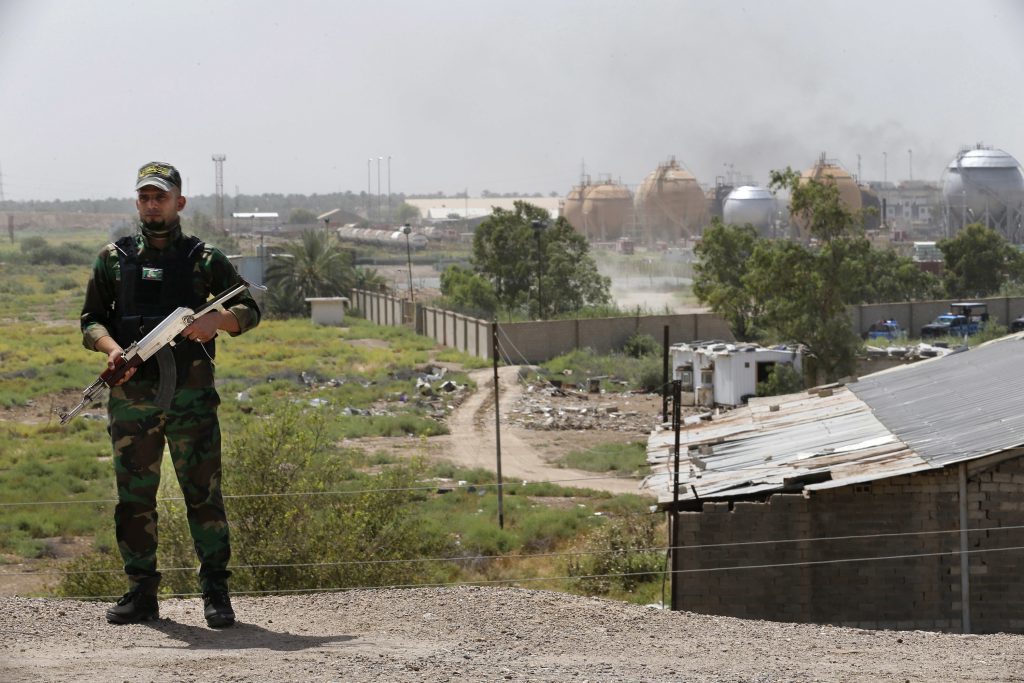
At least 50 people have been killed in Iraq by three car bomb attacks in Baghdad.
A bombing in the Iraqi capital’s north-eastern Shaab neighbourhood killed at least 28 people and injured 65 others.
A roadside bomb first exploded outside the concrete blast walls surrounding an open-air market, followed by a suicide bomber who blew himself up as people gathered to help the victims of the first explosion.
Later, a second car bomb exploded at a fruit and vegetable market in the Shiite-dominated neighbourhood of Dora, in southern Baghdad, killing eight people and injuring 22.
The Islamic State group has claimed responsibility for the twin bombings.
A third car bombing has also struck a crowded market in Baghdad’s predominantly Shiite Sadr City, killing at least 14 people and injuring 30.
Commercial and public places in Shiite-dominated areas are among the most frequent targets for the Sunni militants seeking to undermine Iraqi government efforts to maintain security inside the capital.
Earlier on Tuesday, Iraqi oil workers resumed work at a natural gas plant north of Baghdad, two days after a coordinated IS dawn assault left at least 14 people dead there.
An attack on Sunday in the town of Taji, about 12 miles north of Baghdad, saw a suicide car bombing at the faci6lity’s main gate, followed by several IS fighters breaking into the plant where they clashed with security forces for hours before the attackers were repelled.
The dead included six civilians and eight security forces while 27 Iraqi troops were wounded.
Deputy oil minister Hamid Younis said work at the plant’s three production lines returned “to normal levels,” on Tuesday.
The plant was back to full capacity of producing 30,000 cooking gas cylinders a day, he said, adding that Sunday’s attack had only damaged two gas storages and a few pipelines.
Iraqi state TV showed workers in navy blue overalls filling metal and plastic cylinders on conveyor belts and forklift trucks loading cylinders into trucks.
The assault on Taji came as Islamic State militants are being pushed back along several front lines in Iraq, prompting the Sunni extremists to increasingly turn to insurgency-style attacks to detract from their losses.
IS-claimed attacks have killed more than 140 people since last week in Iraq. In 2014, the IS declared an Islamic caliphate on the territory it holds in Iraq and Syria and at the height of its power was estimated to hold nearly a third of both Iraq and Syria. Iraq’s government says the group’s hold has since shrunk to 14% of Iraq’s territory.